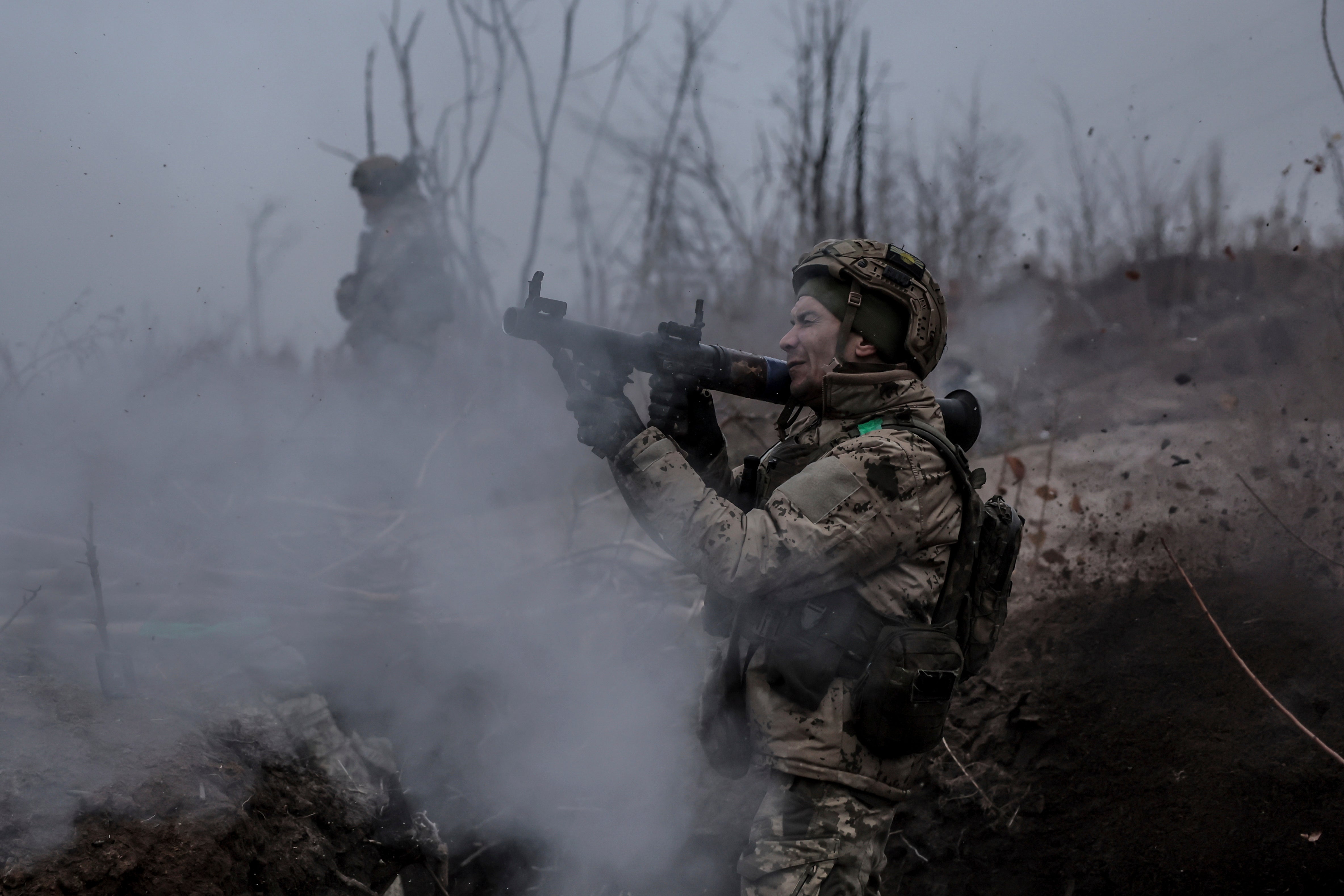Britain’s entire army would be destroyed in six months to a year in a major war, minister warns
Veterans minister issues warning over the state of the armed forces
The entire British army would be destroyed in about six months to a year in a major war, a defence minister has warned.
Alistair Carns, the veterans minister, said the extremely high casualty rate currently being suffered by Russian forces in Ukraine – around 1,500 soldiers a day – highlighted the importance of rebuilding the UK’s reserves.
His warning comes just weeks after John Healey, the defence secretary, said that Britain’s armed forces were so depleted that the country is not ready to fend off a major invasion.
In a damning assessment of the state of the UK’s defences, Mr Healey said that while the military could conduct operations, “what we’ve not been ready to do is to fight”.
Mr Carns, who is a reservist, delivered his warning at a conference on reserves at the Royal United Services Institute (Rusi) in London.

“In a war of scale – not a limited intervention, but one similar to Ukraine – our army for example on the current casualty rates would be expended, as part of a broader multinational coalition, in six months to a year,” he said in an interview with Sky News.
He said that when it came to Britain: “That doesn’t mean we need a bigger army, but it does mean you need to generate depth and mass rapidly in the event of a crisis.
“The reserves are critical, absolutely central, to that process. Without them we cannot generate mass, we cannot meet the plethora of defence tasks.”
“There is a requirement across government to remind people that freedom is not free,” Mr Carns added.

He said he hoped a major review of the UK’s defences, due to be published in the spring, would provide an opportunity to "write a new deal for our reserves".
"We need to catch up with Nato allies and place greater emphasis on reserves," Mr Carns said.
One of the new Labour government’s first acts after winning July’s general election was to launch a thorough “root and branch” assessment of the state of Britain’s military capabilities.
Sir Keir Starmer said at the time that Britain’s defences had been “hollowed out” by 14 years of Conservative Party neglect and promised a “roadmap” to increasing the UK’s defence spending to the target of 2.5 per cent of GDP.
MPs on parliament’s defence committee have also warned Britain is not sufficiently prepared to fight an all-out war, despite such readiness being a vital deterrent to Britain’s adversaries.
The military is “consistently overstretched”, with the “unrelenting pressure” on personnel exacerbating the crisis in recruitment and retention which is seeing more people leaving the armed forces than joining, the influential group of MPs warned.
Join our commenting forum
Join thought-provoking conversations, follow other Independent readers and see their replies
Comments
Bookmark popover
Removed from bookmarks